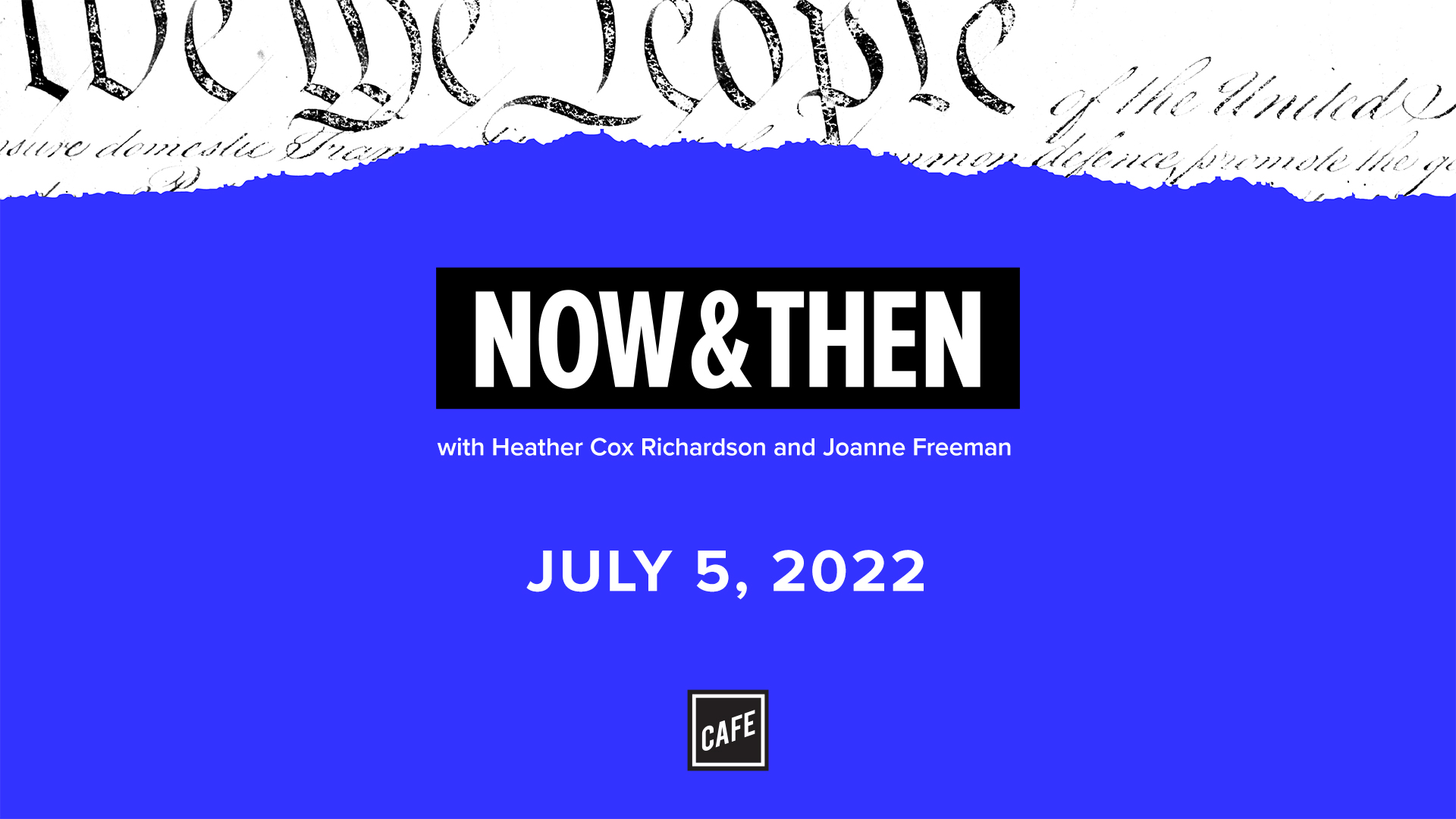July 7, 2022 (Thursday)
Today, President Joe Biden awarded the Presidential Medal of Freedom to 17 individuals who Biden says “demonstrate the power of possibilities and embody the soul of the nation—hard work, perseverance, and faith. They have overcome significant obstacles to achieve impressive accomplishments in the arts and sciences, dedicated their lives to advocating for the most vulnerable among us, and acted with bravery to drive change in their communities—and across the world—while blazing trails for generations to come.”
The seventeen appear to have been chosen quite deliberately to provide a snapshot of a multicultural, nonpartisan society in which people work to overcome hardship and contribute to the public good.
Biden praised decorated gymnast Simone Biles, who has won 19 World Championship gold medals and 4 Olympic gold medals, for her advocacy for the mental health and safety of athletes, children in the foster care system, and victims of sexual assault.
Sister Simone Campbell is “a prominent advocate for economic justice, immigration reform, and healthcare policy.” Dr. Julieta García “was the first Hispanic woman to serve as a college president and dedicated her career to serving students from the Southwest Border region.” Former Member of Congress Gabrielle “Gabby” Giffords, the youngest woman ever elected to the Arizona State Senate and later a U.S. representative, survived gun violence and co-founded a nonprofit organization dedicated to gun violence prevention.
Attorney Fred Gray “represented Rosa Parks, the NAACP, and Martin Luther King, who called him ‘the chief counsel for the protest movement.’” Steve Jobs, who died in 2011, led both Apple, Inc., and Pixar. “His vision, imagination and creativity led to inventions that have, and continue to, change the way the world communicates, as well as transforming the computer, music, film and wireless industries.” Father Alexander Karloutsos has been a Greek Orthodox priest for more than 50 years, “providing counsel to several U.S. presidents.” Khizr Khan is a Gold Star father (which means he lost his son Captain Humayun Khan in the military service of the U.S.) and “is a prominent advocate for the rule of law and religious freedom.”
Sandra Lindsay was prominent in the early months of the Covid-19 pandemic, working as a critical care nurse in New York. She was “the first American to receive a COVID-19 vaccine outside of clinical trials and is a prominent advocate for vaccines and mental health for health care workers.” Senator John McCain, who died in 2018, was a prominent Republican politician from Arizona, famous as an independent thinker who often bucked his party to do what he considered right. Diane Nash helped to found the Student Nonviolent Coordinating Committee (SNCC) that “organized some of the most important civil rights campaigns of the 20th century.”
Olympic and two-time World Cup champion soccer player Megan Rapinoe works “for gender pay equality, racial justice, and LGBTQI+ rights.” Former Wyoming senator Alan Simpson, a Republican, has been “a prominent advocate on issues including campaign finance reform, responsible governance, and marriage equality.” Richard Trumka, who died in 2021, led the AFL-CIO for more than a decade and worked for social and economic justice. Brigadier General Wilma Vaught broke gender barriers as she rose through the ranks of the U.S. Air Force. “When she retired in 1985, she was one of only seven women generals in the Armed Forces.” Award-winning actor, director, and producer Denzel Washington has “served as National Spokesman for the Boys & Girls Clubs of America for over 25 years.”
And civil rights advocate Raúl Yzaguirre, who was a U.S. ambassador to the Dominican Republic, led the National Council of La Raza for 30 years.
“Decorated athletes and military heroes, artists, civil rights giants, activists and trailblazing representatives, intellectuals, and innovators,” Biden tweeted. “That’s America. And these are our 2022 Presidential Medal of Freedom recipients.”
President John F. Kennedy established these awards for “especially meritorious contributions to… [t]he security or national interests of the United States, or…world peace, or…cultural or other significant public or private endeavors.” “In a period when the national government must call upon an increasing portion of the talents and energies of its citizens,” Kennedy said, “it is clearly appropriate to provide ways to recognize and reward the work of persons, within and without the Government, who contribute significantly to the quality of American life.” And yet for all their apparent civic-minded origins, a 2018 study by political scientists E. Fletcher McClellan, Christopher Devine, and Kyle C. Kopko showed that the medals have become increasingly political since 1981 as presidents seek to reward donors and associate their presidencies with individuals who will appeal to their voters or show their administrations in a good light.
The difference between Biden’s first 17 award recipients and those former president Trump honored reflects their different visions of the country. Trump favored white people and focused on athletes, especially golfers; cultural icons (Babe Ruth and Elvis Presley); or icons in the Republican Party’s rightward swing (media figure Rush Limbaugh, economist Arthur Laffer, jurist Antonin Scalia). Trump also awarded a medal to Representative Devin Nunes (R-CA) on January 4, 2021 and, on January 11, 2021, to Representative Jim Jordan (R-OH).
That vision of the government as a way to reward loyalists might have moved past legal boundaries. New York Times journalist Michael S. Schmidt yesterday reported that both former FBI director James Comey and his deputy Andrew McCabe were tapped for extremely rare invasive tax audits by the Internal Revenue Service during the Trump administration. Those audits are supposed to be random, and the chances that both Comey and McCabe, whom Trump singled out as enemies for their role in the Russia investigation, were randomly chosen seem small. The two men were unaware the other had gone through the deep audit until a reporter told them.
Today, the IRS director Charles Rettig, the Trump appointee under whom the audits took place, asked the inspector general of the Treasury Department to investigate the matter.
There was international condemnation of right-wing policies in the U.S. today, when the European Parliament voted 324 to 155, with 38 abstaining, to condemn the Supreme Court’s recent decision in Dobbs v. Jackson Women’s Health, overturning the 1973 Roe v. Wade decision recognizing the constitutional right to abortion. It also demanded that the European Union recognize the right to abortion in its charter, and to provide “safe, legal and free abortion services, pre-natal and maternal healthcare services, voluntary family planning, youth-friendly services, and HIV prevention, treatment and support, without discrimination.”
U.S. Secret Service director James Murray announced his retirement from the agency today to take a position as security chief at Snapchat’s parent company, Snap. Former president Trump appointed Murray to the head of the Secret Service in May 2019. Questions about the loyalties of certain Secret Service agents have swirled since January 6, but the White House said the resignation was not connected to the recent testimony of Cassidy Hutchinson, aide to Trump’s chief of staff Mark Meadows, who mentioned hearing of a physical altercation between Trump and an agent after Trump spoke at the Ellipse on January 6.
In the U.K. today, Prime Minister Boris Johnson stepped down as head of the Conservative Party after dozens of officials in his government resigned over repeated scandals. He says he will step down as prime minister when the party chooses his replacement, likely this fall. Party leaders may force him out sooner. In a statement, Biden said that “the special relationship between our people remains strong and enduring…. I look forward to continuing our close cooperation with the government of the United Kingdom, as well as our Allies and partners around the world, on a range of important priorities. That includes maintaining a strong and united approach to supporting the people of Ukraine as they defend themselves against Putin's brutal war on their democracy, and holding Russia accountable for its actions.”
Tonight, former Japanese prime minister Shinzo Abe was shot in the chest while he was giving a campaign speech in the city of Nara. His condition is critical. Police have arrested a male suspect in the shooting. Washington Post Tokyo/Seoul bureau chief Michele Ye Hee Lee tweeted: “Can't overstate how shocking this shooting is—not only because Abe is very popular and prominent, but also because gun violence is extremely rare incident in Japan, a country with some of the world's strictest gun laws.”
President of the European Council Charles Michel tweeted that Abe is “a true friend, fierce defender of multilateral order [and] democratic values.” He promised that the European Union stands with Japan and Prime Minister Fumio Kishida.
Finally, former president Jimmy Carter and Rosalynn Carter celebrated their 76th wedding anniversary today. Theirs is the longest presidential marriage in our history. They were married in Plains, Georgia on this date in 1946.






